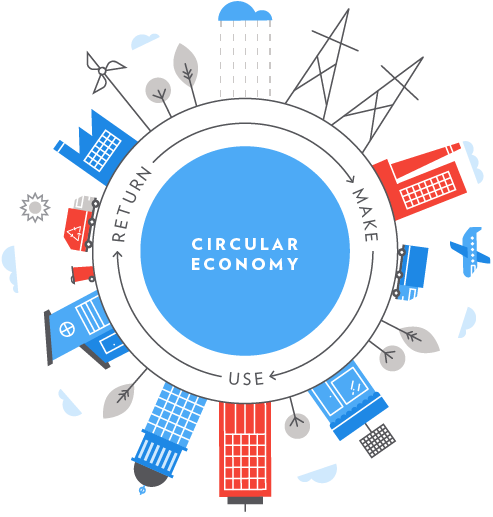New Research Project Announcement

Circular Economy Initiative CE@KTH in cooperation with Stockholm Environment Institute (SEI) have been successful in securing the Vinnova funding for the project to develop urban circularity framework. The project “Urban circularity assessment framework” has been awarded funding under the priority area of "Innovation for sustainable society – for climate neutral future”.
Researchers Prof. Cali Noor (ITM school, INDEK), Dr. Maryna Henrysson (ITM school/EGI) and Dr. Rajib Sinha (ABE school/SEED) will collaborate on the project with and overall purpose to support cities in becoming more circular, thereby reducing the pressures on the environment.
Today, cities consume 75% of global material resources and 80% of global energy and about 70% of waste. An urban circular economy would provide multiple sustainable development benefits, but there is a need to understand the overall impact and opportunities this brings, including improving how to assess or measure the urban circular potential. Measuring progress is a fundamental element of the circular economy-based urban transition.
With our project, we, a collaboration of researchers, private sector actors and local government, will:
- co-develop an urban circularity assessment framework, allowing to measure the level and potential for circularity at city level, which can be tailored to various decision-making contexts and sector-specific demands;
- identify opportunities for recovery of resources and energy, through the application of the assessment framework to a specific city or region;
- map the impact of the transition to a circular economy for businesses, citizens and policy makers, allowing to understand the societal effects of the transition, and uncover any adverse effects of the transition.
The project consortium consists of SEI (coordinating), CE@KTH (INDEK, EGI, SEED), Ragn-Sells Recycling AB, Stockholm Vatten och Avfall AB, Umeå kommun, WSP Sverige AB. The project will take 3 years to complete and costs 6,5M SEK.
Our project will contribute to Sweden’s ambition in becoming fossil-fuel free and fill several gaps within research and the application of circular economy models.